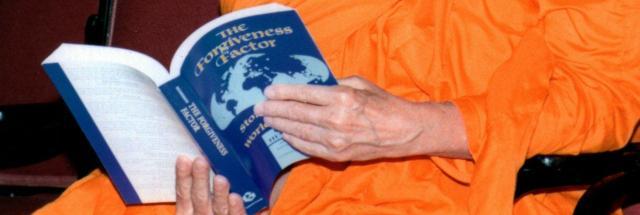KBOO 22 February 1990
When Lord Carrington resigned as British Defence Secretary at the time of the Argentine invasion of the Falkland Islands many well-meaning people tried to talk him out of it. But he felt it was the right thing to do. Not out of a sense of blame but because the country felt angry and humiliated and if he had stayed it would have made it harder for the government. As he wrote, ‘My departure would put a stop to the search for scapegoats. It would serve the cause of unity and help turn the eyes of all from the past to the immediate future.’ His action helped maintain what some might regard as old-fashioned but certainly are high standards of public service. It also, as it happened, opened the way for him to become for four years Secretary-General of NATO. Lord Carrington served in every Conservative Government from Churchill’s of 1951 to Mrs Thatcher’s of 1979. And a Member of the House of Lords I talked with this month regrets that he is not a candidate to succeed the Iron Lady.
I have just been reading his memoirs ‘Reflect on Things Past,’ and throughout its pages is reflected the basic decency of the man. There are many short sketches of others in public life and it is noticeable that those he thinks highly of are identified and many of those that he feels behaved badly remain nameless. There is enough humor in the book for former Foreign Secretary David Owen to comment , ‘Some jokes leave me still chuckling’ and enough substance on issues as varied as nuclear deterrence and the independence of Zimbabwe for the ‘Times Literary Supplement’ reviewer to call ‘Reflect on Things Past’ as ‘a serious and thoughtful retrospect of foreign policy over thirty years.’
We are introduced to an entertaining account of earlier Lords Carrington. These include his great uncle who was so incensed by a
scurrilous attack on his father by a journalist that he purchased a rhinoceros-hide whip, beat the unfortunate man on the steps of the Conservative Club, and then went to nearby Pratt’s Club where he asked friends to testify to the fact that he was neither excited nor drunk. This Lord Carrington was bonded over for the assault but the journalist, charged with perjury, fled the country. The present Lord Carrington says he never belonged to the Conservative Club but might have had difficulty joining because those at this respectable institution have long memories!
Lord Carrington’s memoirs span his life at Eton, and in the Grenadier Guards, including service in Europe in World War II, his experiences in government and Opposition, in agriculture and defence, and his stint as Governor-General of Australia, Incidentally, he tells a delightful cricket story from when he was in Australia. After an international match one evening he found himself with Donald Bradman, Australia’s greatest cricketer, and Brian Johnston, the cricket commentator. Brian criticized Australian umpiring and a particular controversial decision that afternoon. ‘I can’t understand how he can have given him out,’said Brian. ‘He doesn’t know the rules of the game. He can’t have played cricket in his life.’
Bradman got angry, ‘Hasn’t played cricket,’ he roared. ‘He played for Australia. In fact, he’d be playing still if his eyesight hadn’t failed.’
He has other delightful vignettes. For instance, Field Marshal Viscount Montgomery greeted him with the words, ‘How do you do, have you met me before? Lord Carrington’s comment, ‘I had never heard it put quite like that.’ And Prime Minister Macmillan, chided by a British Ambassador for a rather disagreeable remark he had made about Senator Muskie. Th Amabassador said, ‘How would you like it if you were at a meeting in your constituency and someone from the back of the hall yelled out ‘Lady Dorothy Macmillan is an old drunk.’ How would you react?’ Macmillan replied, ‘Ah, I would shout back, ‘You should have seen her mother.’’
Summing p his views Lord Carrington says that he is a vigorous opponent of those who cherish a nostalgic and absurdly grandiose image of Britain’s modern destiny, an opponent of those who resent or reject Britain’s place as a European nation, and also as an opponent of the unfeeling, the inwardly callous however smooth-spoken, the hard-hearted people in politics, the cynics.
He has always believed in the necessity to see the points of view of others and to try to see how others look at Britain. For arrogance and insensitivity, he believes, come too easily to a people which holds an inflated view of its own rights and importance.
‘I have been in politics,’ he concludes, ‘because I have enjoyed it, I have loved my country, and wanted to contribute to governing it. The simple ideas I have spent much of the time trying to promote are those of the fortunate sharing responsibility for those less so; and of our nation, vigorous to defend itself if attacked, seeking harmony and genuine understanding with others in a world where Britain – good-natured, good-tempered and good-mannered Britain – has a limited but still significant and honorable role to play.’
‘Reflect on Times Past’ is not, then, the retailing of scandal, or the getting back at opponents, or the source book for sensational headlines. Rather, it is a book that makes you wish that more in public life had the motivation of the 6th Lord Carrington.

